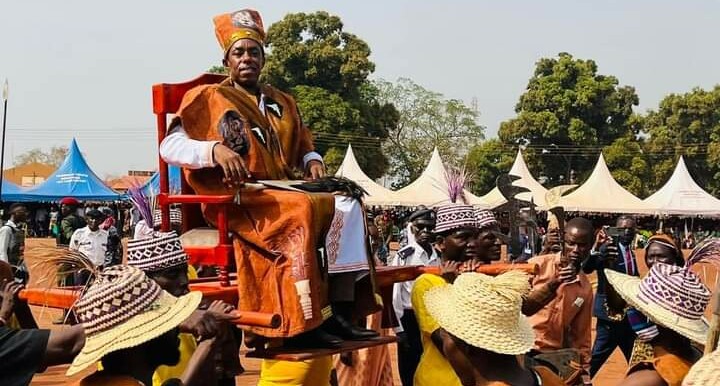Several ethnic communities in Western Equatoria State have written letters to the newly installed Azande King and President Salva Kiir cautioning that they are not and cannot be subjects of the recently restored Azande Kingdom.
On 9 February, the Azande Kingdom was restored and Atoroba Peni Rikhito Gbudue was installed as the King.
15 Community leaders from Maridi wrote a letter dated 3 February to the king in waiting, a few days before the coronation of the new Azande King, emphatically rejecting to be subjects of the restored kingdom.
”We the ethnic communities in Maridi did not have a Kingdom before and up to date. We shall never accept any Kingdom imposed on us in Maridi and its territory,” the letter read in part. “The people of Maridi stand for Government of South Sudan but not the Azande Kingdom. We stand to promote the Republic of South Sudan, not the culture of a specific group.”
They added: “We promote peace and advocate for respect of opinions, freedom, and rights of the communities of Western Equatoria and South Sudan at large not unity of an ethnic Kingdom.”
The letter was copied to the president and his deputies, the state governor, Speaker of the National Legislative Assembly, the church, state minister of local government, Maridi County commissioner, National Security Service, Maridi Paramount Chief, Maridi community, and the head of UNMISS.
When contacted for clarification, the chief Mambe Payam in Maridi County, David Malish Jonathan, authenticated the letter and said they took a collective stand and wrote as the chiefs of Maridi County.
“We as the chiefs of Maridi cannot refuse them from bringing back their kingdom because it was there from a long time ago and it was their Azande culture,” Chief Malish said. “What we discussed in our meeting as chiefs is how it will affect the other communities in the state. If the kingdom will help everybody, then we can look into that in the future. What we want is that it should not divide the people of Western Equatoria but unite them.”
Another ethnic group, the Balanda, also wrote a letter dated 4 February to President Salva Kiir cautioning that there was no legal instrument backing the restoration of the Azande Kingdom.
The letter seen by Radio Tamazuj stated, “The members of Balanda community are fully convinced that under the current legal provisions and in absence of the deliberations and recommendation by the state assembly, resolution of the state council of ministers and endorsement of the national leadership, the state authority has no legal basis to enthrone or crown a King or to declare a Kingdom.”
The letter added: “The Balanda have always lived under their own chiefs and will not accept to be ruled by a King or chief from another tribe whatsoever.”
The Balanda leaders said that their traditional leadership structure is decentralized through chieftaincy based on merit only and not inherited through a bloodline.
“So, Balanda will never follow a traditional leadership structure that is inherited through a bloodline,” they wrote. “We have no opposition to any ethnic group practicing its own culture or establishing its own traditional leadership as long as it does not interfere with Balanda traditional ways or infringe into their territories.”
The Balanda community leaders also laid claim to certain areas in the state.
“The areas in from central, northern and western parts of Tambura and Nadiangere north of Yambio have always been predominantly inhabited by the Balanda community and so the Azande have no claims to these territories and Tambura has always been home to many tribes and Azande in any way do not constitute a single majority to lay claim to Tambura as part of the Azande Kingdom,” they wrote.
For his part, Alfred Maluk, the chairperson of the youth union in Mvolo County, said they welcome the Kingdom of Azande because it was historical but that their community and the 7 chiefs under Mvolo County must be administered by the county structures and not the Azande Kingdom.
“For us, in Mvolo we cannot say the Azande Kingdom is a problem to us because it was there before,” Maluk said. “The county here has 7 executive chiefs and their rules will be under the county authority and Zande kingdom will rule only in their territory because the kingdom is different from government.”
Alexander Juma Baba, the Paramount Chief of Mundri West, said they are ready to support the Azande Kingdom for as long as they do not impose their culture on other entities.
“This issue of traditional culture cannot be the same. We will practice ours and other tribes will do theirs. For the youth, the Kingdom is for all of us in western Equatoria and they should support it,” Chief Juma said.
While speaking during the celebration of Gbudue Day and during the installation of King Atoroba Peni Rikhito in Yambio, the representative of the Azande royalty, Daniel Badagbu Rimbasa, said the Kingdom will not be politicized.
At the same function, the newly installed king said his Kingdom will not expand its territory.




